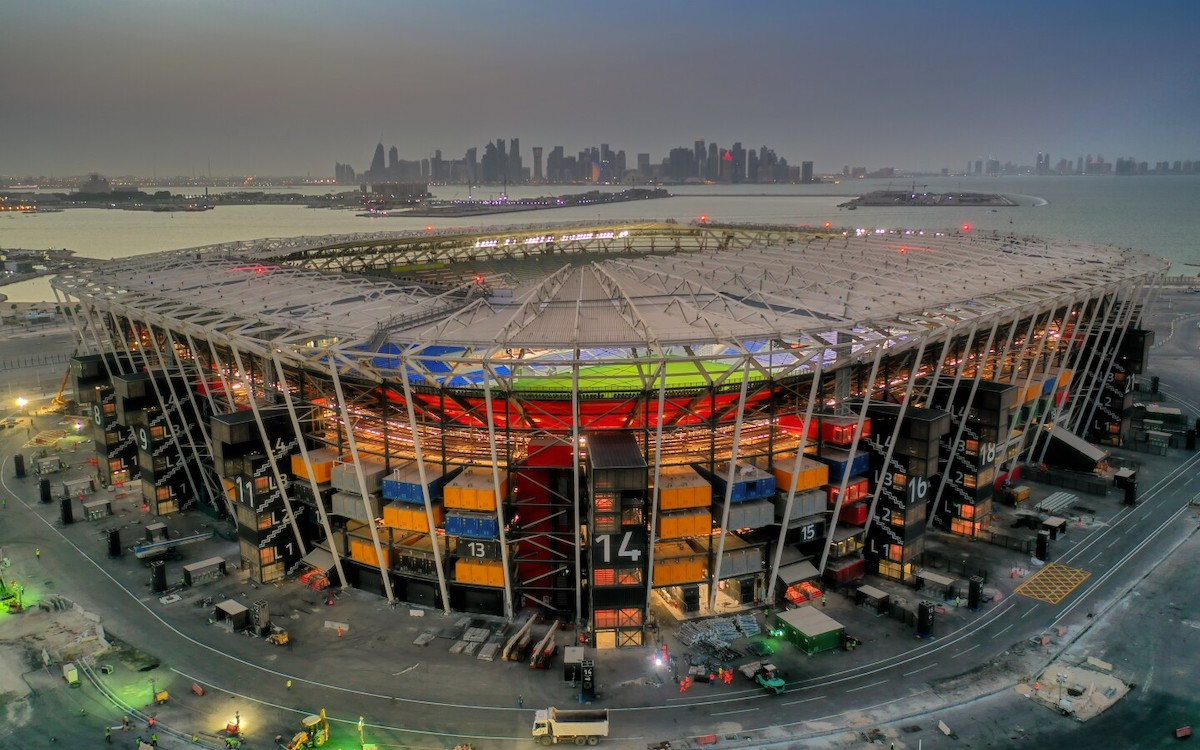

News
Two Years On: What Happened To Qatar’s World Cup Stadiums?
On December 18, 2022, the thrilling final of the 2022 World Cup unfolded, where Argentina triumphed over France with a score of 4-3.
This match is celebrated as one of the greatest in football history, showcasing the sport’s excitement and drama.
However, the tournament was also accompanied by a lot of controversy, but also interesting innovations, such as sustainable, reusable stadiums. So, how did they turn out?
Greatest tournament of all time
The 2022 World Cup was the 22nd FIFA World Cup. This tournament was the last with 32 participating teams, with the number being increased to 48 for the 2026 edition.
To avoid the extreme heat of Qatar’s climate, the tournament was scheduled for November and December instead of the usual months of June and July.
With a total of 172 goals, the tournament set a record for the most goals scored in the 32-team format. Every team that participated found the score at least once, with the crowning moment of the month being the thrilling final mentioned earlier.
Argentina were crowned the champions after winning the match against the title holder France on penalties following a 3-3 draw after extra time.
French star, Kylian Mbappe, became the first player to score a hat-trick in a World Cup final since Geoff Hurst in the 1966 final and won the Golden Boot with eight goals in total. Mbappe also became the first player to score in two consecutive finals since Vava of Brazil did the same in 1958 and 1962.
However, Mbappe was overshadowed by Lionel Messi, who “finally” won the World Cup and was named the tournament’s best player.
With an astonishing 1.5 billion viewers tuning in on television, the final established itself as one of the most-watched sporting events in history, captivating audiences around the globe.
Qatar’s Football Stadiums
Qatar is a small country with a population of around three million, but it is a country with a lot of wealth. The Qataris could afford to host an event as big as the World Cup.
Of course, they had to build the infrastructure to do so, so from 2010 (when Qatar was announced as host), eight stadiums in five Qatarian cities were built or renovated as the 2022 World Cup venues.
Infrastructure was a key topic of discussion during the tournament. Out of the eight stadiums, all but two have either been dismantled or have undergone moderate to significant modifications since then.
The Stadium 974, made of shipping containers, should have been a positive example of sustainability. After the tournament, it was supposed to be dismantled and transported to another location, where it would continue to serve as a venue for football matches.
Stadium 974: An example of sustainability or flop?
Stadium 974 was the first intentionally designed temporary venue in World Cup history. Constructed from 974 recycled shipping containers, its name also references Qatar’s country calling code.
The stadium was opened in November 2021 and hosted matches during the Arab Cup 2021 and the 2022 World Cup, after which dismantlement was planned with the stadium being moved to Africa or South America.
However, this has not happened and the stadium rests abandoned at its original site.
Just a few days ago, in December 2024, Stadium 974 was revitalized for football once again. Staying true to its original location, it hosted matches for the Intercontinental Cup 2024.
Stadium 974, planned to be the world’s first reusable stadium, still has a chance to fulfill its original intention. Hopefully, this remarkable stadium will not go down in history as yet another controversy at the World Cup in Qatar.
Lusail Stadium: Another grand final after two years
The 2022 World Cup final was held at Lusail Stadium, and today, December 18, 2024, exactly two years later, another final match will take place here again.
Lusail Stadium is the largest stadium in Qatar and the Middle East with a capacity of nearly 90,000.
However, the plans are that the capacity of the stadium will be reduced by about half in the near future.
Tonight, Lusail Stadium will once again take center stage as it hosts a high-profile final, featuring an exciting clash in the Intercontinental Cup between Real Madrid and Mexico’s Pachuca.













